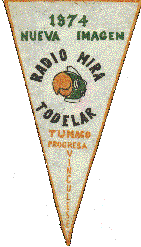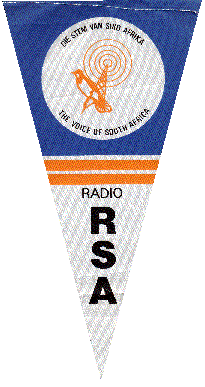
|
 |
|
QSL
Cards for
Short wave
Listeners
|
|
|
|
|
 |
 |
 |
 |
| QSL
Cards for
Short wave
Listeners |
|
|
|
"QSL"
is the
radiotelegraph
code
meaning "I
confirm"
or "I
acknowledge
receipt".
In
short-wave
listening,
a "QSL"
is a card
or letter
from a
radio
station
confirming
that the
recipient
indeed
heard the
station.
|
|

|
Most
international
broadcast
stations
today use
regular
monitors
to assess
how well
they are
being
heard and
no longer
rely upon
listener
letters.
However,
most
broadcasters
still
respond to
listener
reception
reports
with QSL
cards or
letters.
Many SWLs
have
amassed
impressive,
colorful
collections
of these
souvenirs
of their
listening
experiences. |
|
|
|
To
receive a
QSL from a
station,
you need
to send a
"reception
report"
to the
station giving
information
about what
you heard,
the
reception
conditions,
and what
you liked
(or
didnít
like)
about
their
programming.
A good
reception
report
should
include
the
following:
- the
date and
time (in
UTC) you
heard the
station
- the
frequency
on which
you heard
the
station
- details
about what
you heard
sufficient
to
establish
that you
indeed
heard the
station;
these are
things
like names
of
announcers
and
programs,
titles of
musical
selections,
station
slogans,
etc. (be
sure to
include
the times
you hear
the
various
items)
- an
evaluation
of the
signal
quality,
including
strength,
degree of
fading,
and any
interference
you were
experiencing
(include
the names
and
frequencies
of
interfering
stations)
- the
make and
model of
radio you
are using,
along with
any
external
antenna
you use
- comments
and
suggestions
about the
stationís
programming
|
|
|
|
To
encourage
frequent
reception
reports,
many
international
broadcasters
change
designs of
their QSL
cards
frequently
and offer
special
series of
cards that
require
you to
send
reports at
regular
intervals.
In the
late
1980s, for
example,
Radio
Denmark
offered a
set of QSL
cards that
formed a
painting
when all
cards were
collected.
Other
stations
send out
stickers,
decals,
and
pennants
made of
paper,
plastic,
or cloth
to regular
reporters.
And a
reception
report to
a station
will
typically
get you on
their
mailing
list for
program
schedules
for years
to come.
Donít
be afraid
to
candidly
state what
you really
liked or
disliked
about
their
programming,
and feel
free to
make
suggestions
about what
you would
really
like to
hear. Some
times
major
changes
have been
made as a
result of
these
suggestions.
|
|
|
|

|
Not all
short-wave
broadcasters
actively
seek
reception
reports,
especially
stations
in smaller
nations
that are
privately
owned and
operated
(as is
often the
case in
Latin
America).
Here you
must get
creative
in order
to get the
station to
reply.
While
English
can be
used when
reporting
to major
international
broadcasters,
you should
always
report in
a major
language
used in
that
nation
when
reporting
reception
of smaller
short-wave
stations.
You
should
also
include
some
souvenirs
of your
area, such
as picture
postcards,
commemorative
stamps,
etc. It
also helps
to prepay
the
postage
for a
reply. The
easiest
way to do
this is
with mint
stamps of
the
country;
these can
be
obtained
from stamp
dealers or
from
individuals
who sell
these to
the SWLing
and ham
communities.
However,
you could
always
send along
two or
three
international
reply
coupons (IRCs),
which are
available
at larger
post
offices. |
|
|
To find
the
correct
address to
send your
reception
report to,
consult a
publication
such as Passport
to World
Band Radio
or the World
Radio TV
Handbook.
These
publications
will also
include
information
as to what
languages
you can
send
reports
in,
whether
return
postage
should be
sent, and
which
station
personnel
should
receive
your
letter. Always
send your
reports
via air
mail;
the extra
cost over
surface
mail is a
small
price to
pay for
the extra
speed and
reliability
of air
mail
service.
|
|
|
|
Some
non-broadcast
stationsóespecially
time
signal
stations,
maritime
stations,
and
hamsówill
also reply
to
listener
reports,
especially
if the
listener
prepares a
QSL card
and sends
it along
with their
report.
A lot
of people
enjoy
short-wave
listening
without
bothering
to send
reception
reports
and
collecting
QSLs, and
indeed
there are
several
listeners
(and
stations)
that
consider
the entire
practice
to be a
waste of
time and
energy.
Today,
QSLs cards
from
stations
in
countries
like the
USSR,
Czechoslovkia,
East
Germany,
Sikkim and
other
countries that
no longer
exist.
These are
pieces of
history
Iím glad
I decided
to
preserve!
|
|
|
|
|
 |
 |
|

